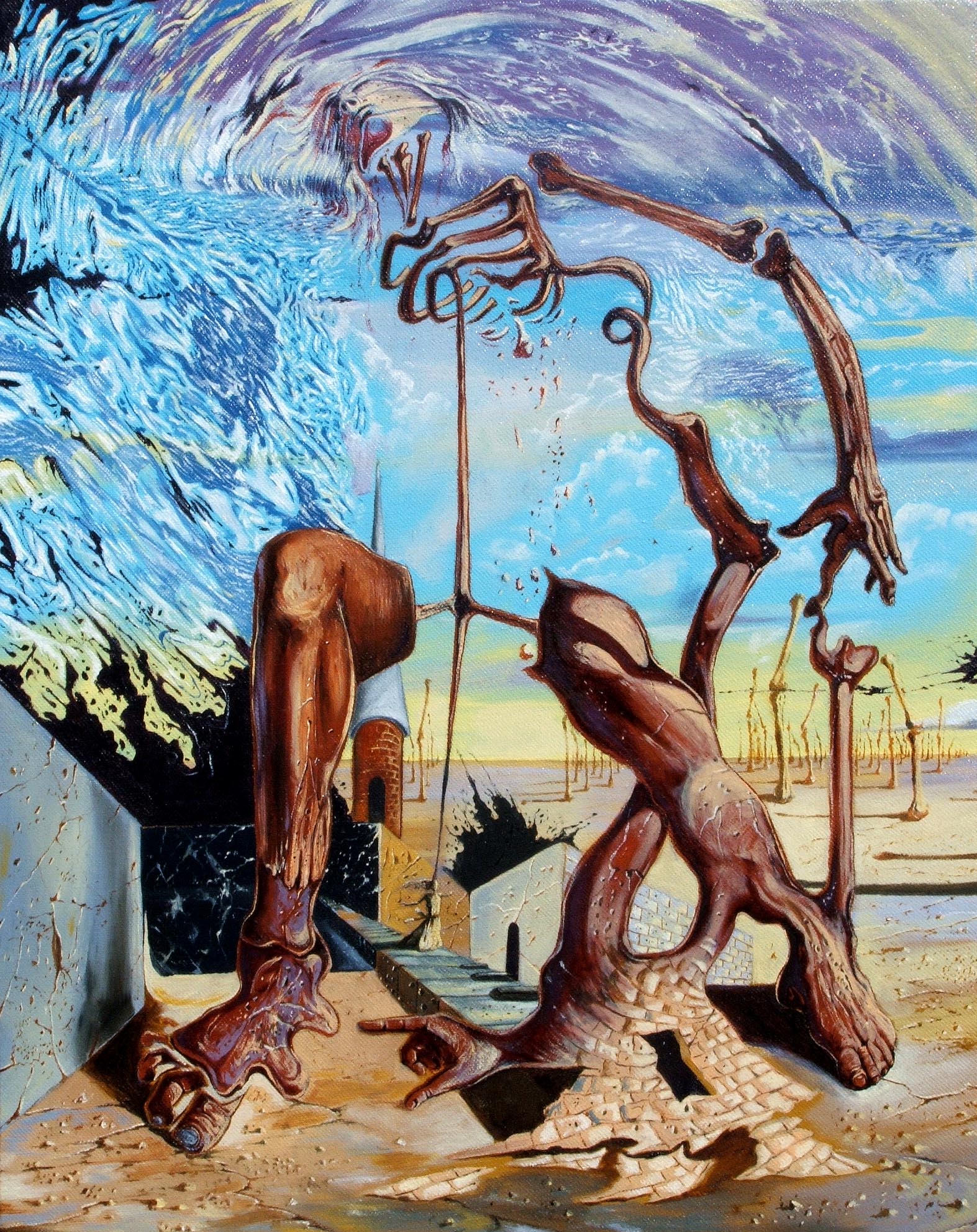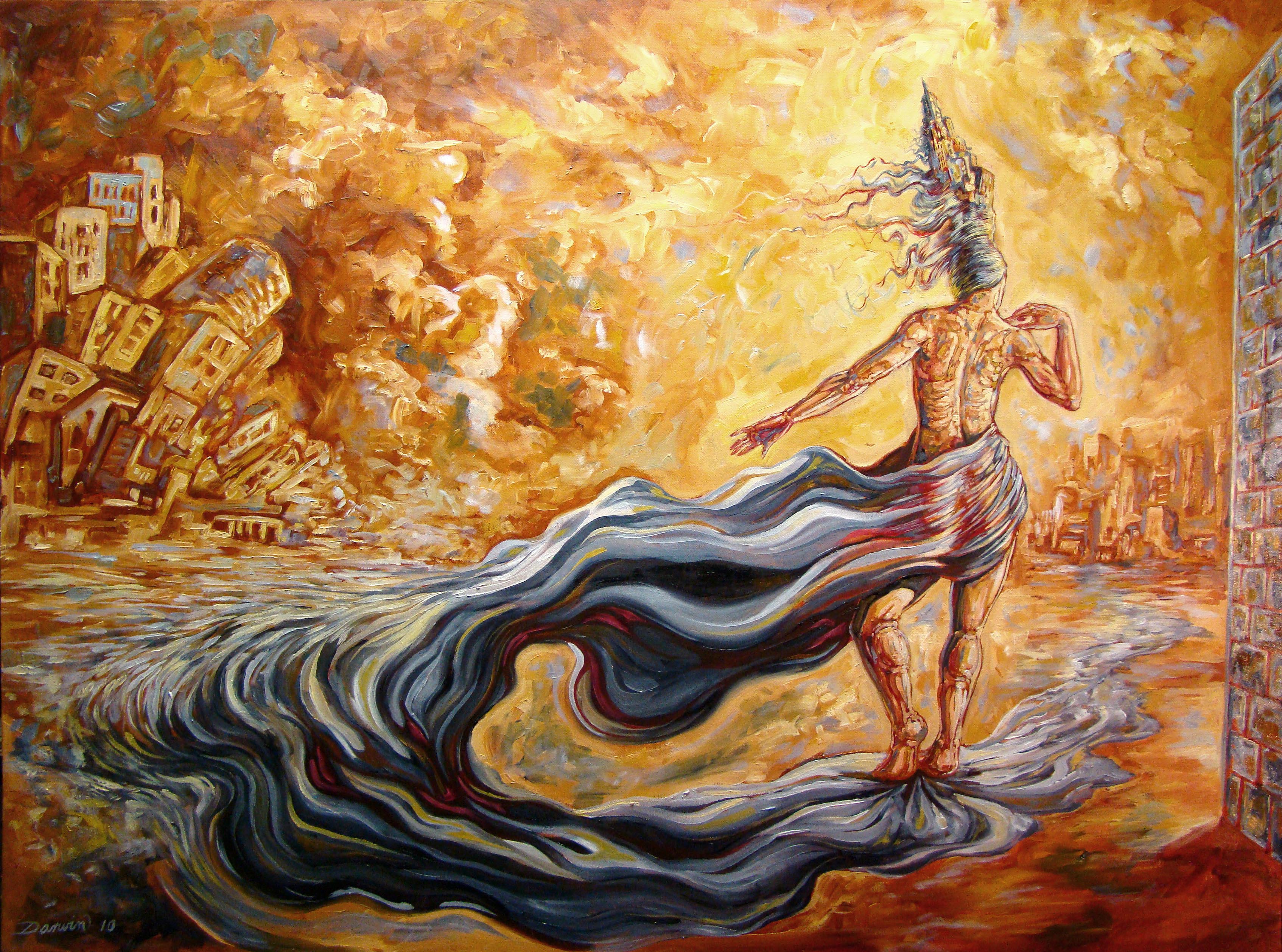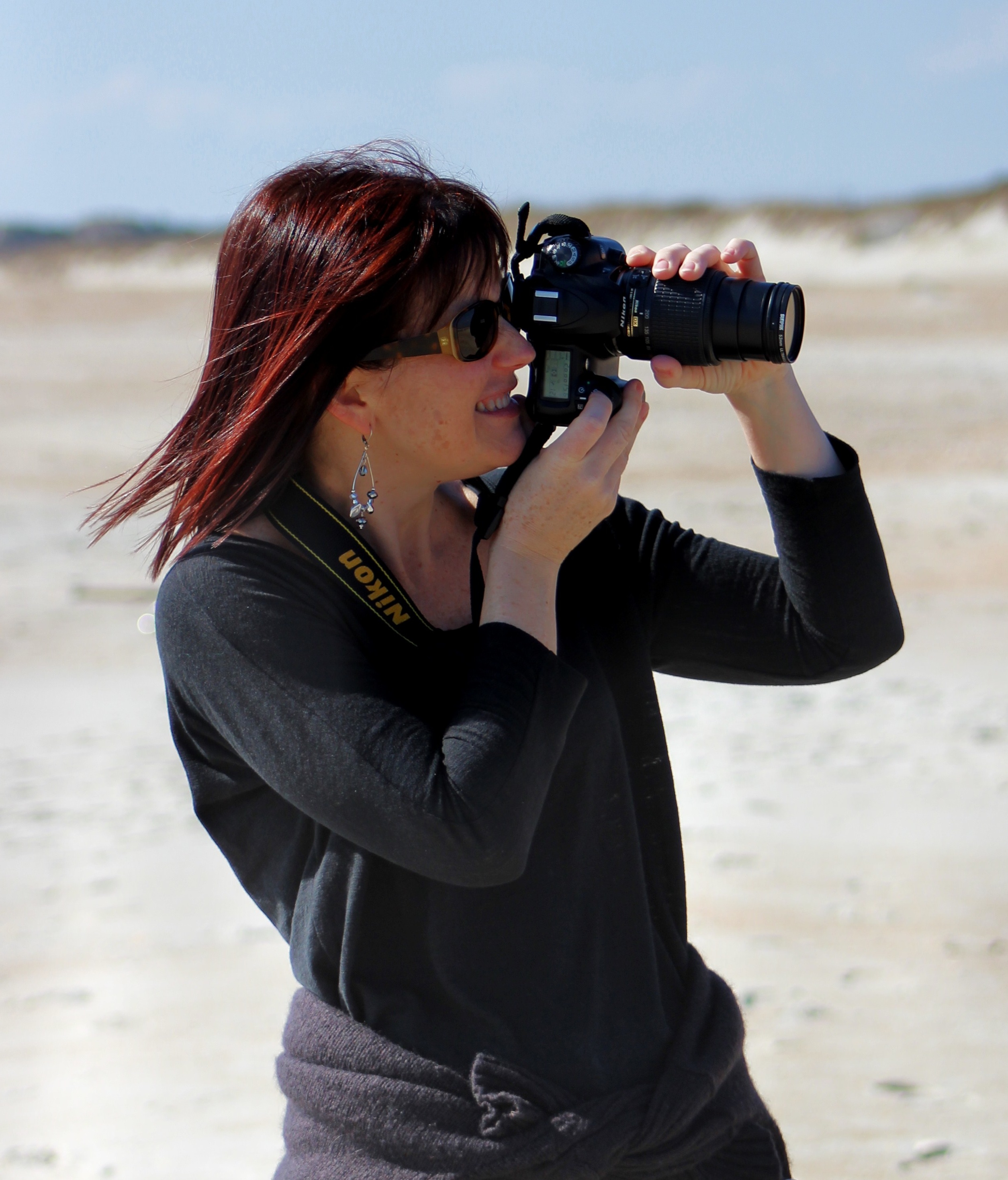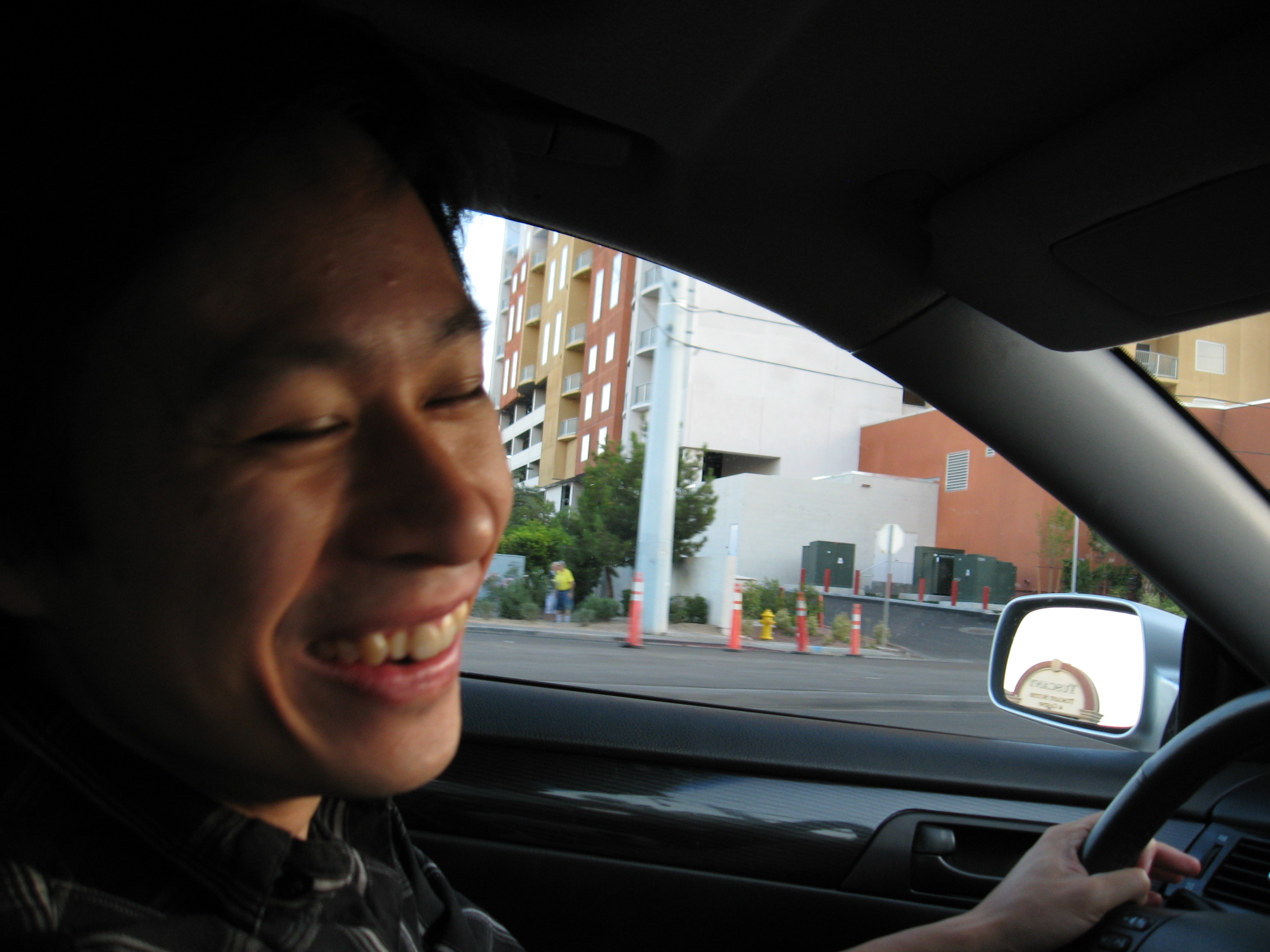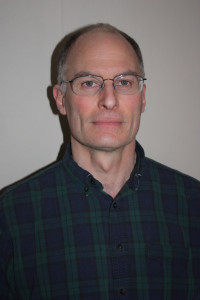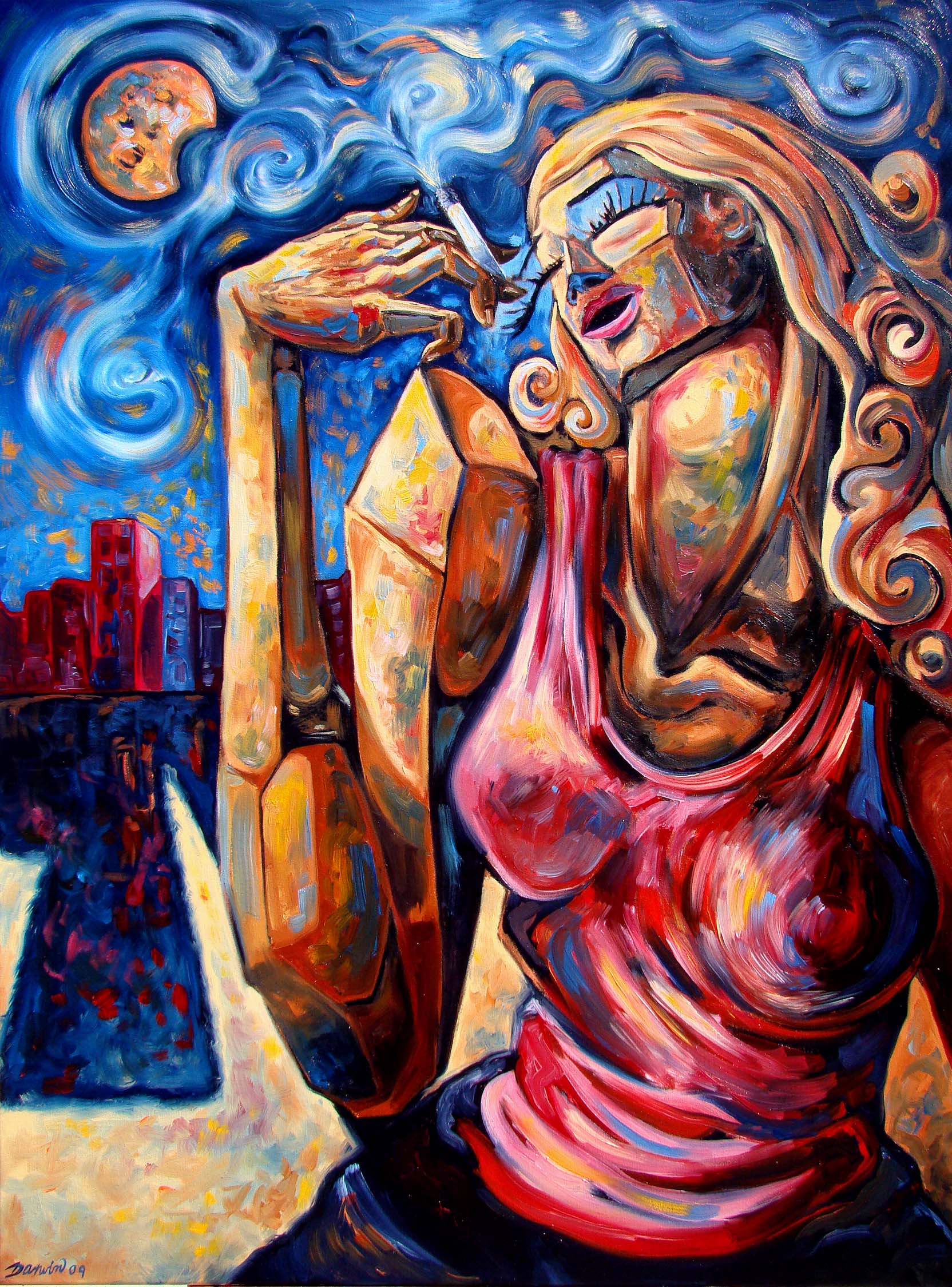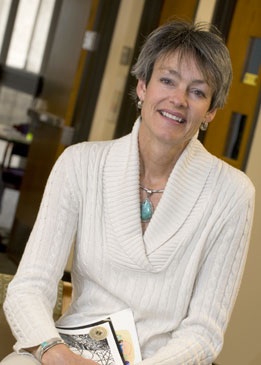
Joan Hanna: We were so excited to have “Afterward: a Draft” in our April issue of r.kv.r.y. This was a personal and intimate piece about a rape that took place in the early 70s. Can you share a little with our readers about how the passage of time factored into your perspective?
Kathryn Winograd: Of course it was the poet Wordsworth who said poetry is “emotion recollected in tranquility,” and I think the same can be said for creative nonfiction. The raw wound, that “spontaneous overflow of powerful emotions,” does not always allow language its transforming capacity for communion, for enlightenment, even transcendence, dark as that might translate itself. Now why it took me almost 40 years to reach a state of mind from which I could write this is something for me to ponder. When I was raped in the early 70s, I was a scared little girl, overwhelmed by the weight of familial, legal and societal expectations, and, to be honest, only half-veiled condemnations and ridicule, especially by my peer group. Despite the efforts and the progress made by women advocate groups at the time to shift legal scrutiny from the women rape victims themselves–states still required victims to prove that they had resisted “to the utmost” despite most certain physical imperilment and jurors were often instructed to give the victims’ testimony “special scrutiny,” a sobering 17th century residue from when women rape victims were referred to as the “never so innocent,”–publically, rape victims were still regarded as culpable or tainted and thus pressured, however unconsciously or well-meaning, into silence, into the acquiescence of shame. I think having my own daughters and seeing their fragile, beautiful innocence unfold before me gave me the distance I needed from that little silent girl I carried inside me to begin to understand the ramifications of an act of violence on all levels. I am not that little girl, but a woman of 52 years who can look upon her with the greatest of tenderness now, and maybe even look upon those who wounded her most with at least wisdom or clarity, or, more powerfully for me, with neither as I try to understand the great gaps, as the poet Natasha Trethewey might say, in this history.
JH: In your essay you make a very strong distinction about your attacker being a “boy” at the time of the attack and the feelings you had about your attacker spending 25 years in prison. How do you think that changes the perception of the attack from your present perspective? Do you think his age factored in at all for you at the time of the attack?
KW: At least for me at thirteen, a nineteen year old seemed very old. A grown up I had no understanding of. My parents’ periodic “updates,” I barely registered–ashamed, embarrassed to be reminded of something I was trying so hard to bury. My view of him as a “boy” emerged, again, as a result of my daughters and their friendships with male friends who seemed sometimes so heartbreakingly clueless and immature despite their outward bravado. One of their friends did something, nothing even close on the scale of what my perpetuator did to me that could have affected him legally for the rest of his life. Despite his good upbringing, his manners, his intelligence, he committed a stupid act against a girl his age, done out of great immaturity for which he regretted and still regrets to this day. What if the authorities had not recognized his immaturity, his capacity for change? Of course even as I write this, I am thinking that perhaps this is the crux of the issue: this boy had a core of goodness from which change could come. Did my perpetuator (notice here I don’t even call him a “boy”)? He already had a long list of offenses, each more invasive, more violent. Is there no hope then? Right now in Colorado, the courts reconsider a law that allowed children under the age of 18 to be convicted as adults for felony crimes, convictions that include life in prison without parole. Even for 14 year olds. Yet children under 18 do kill. Even 14 year olds kill. And families grieve. In the Super Max prison located in Florence, Colorado, inmates are in isolation 23 hours a day. For life. And yet some or all would kill me, and a hundred others, without a thought. I have no answer here. I could call myself a “bleeding-heart liberal,” yet the thought of stepping into a prison to teach inmates creative writing as some of my colleagues do leaves me sickened. My present perspective? That is still a gap.
JH: How do you think the pressure of a young girl knowing she “had to be the one to stop him” affected recovery from such a vicious act?
KW: Now I see it differently, but back then I was my parents’ loving, obedient daughter, affectionately called “KeeKee” by my father. This is what they said I must do and so I did. They did not ask me to do this unkindly. I know now, as a parent myself, that it must have been agonizing to watch me, so awkwardly clueless, have to answer the questions I did, meet the people I did, testify on the sexual matters that I had to. I think only the summer before my mother had taken me into her bedroom and presented me with a pink Kotex box and helped me read the instructions on how to use them and why. I still remember the little blue belt that fastened around my hips. And that year, our junior high phys ed/health classes were still showing us cautionary animations about light bulbs (boys) and irons (girls). My parents could have buried this, sheltered me, but they both had a fine sense of moral responsibility, which I respect. They wanted to protect other girls and so they hoped through the concept of altruism to give me strength. Traumatic as the court procedures and all that went before might have been (I remember so little of it), I think they had little effect, good or bad, on my recovery. But of course once more I am dealing with gaps.
JH: You quote some horrifying statistics including, 40 women raped a day in the Democratic Republic of Congo and 200,000 women raped during the Bangladesh Liberation War. Can you talk a little more about the use of sexual violence as a tactic of war?
KW: I don’t know when I first heard the reports that the whole concept of rape in war had changed. I still had the Hollywood version in my head: rape happened as a side-consequence of brutal men, renegades swept over by the primalness of war. Then I began to hear of women raped by the thousands in a systematic manner designed to destroy whole cultures through decimation of the family unit, the introduction of the enemy sperm into the very bloodlines of a civilization, the civilization usurped not just by death, but, by birth. When I thought I had finished my manuscript on my own rape, I realized that I needed another voice, another perspective; one that looked beyond the individual case into the spectrum of gender worldwide. Too long I had nursed this as something that happened only to me, not realizing that I was merely a statistic, not even a faint blimp on the world radar. I barely had to do any research before I began to be overwhelmed by the vastness of this sisterhood I had unwillingly and unknowingly joined, and the ferocity of the men who would maim and annihilate what birthed them. Start with the United Nations Human Rights website and look up “Rape: Weapon of War” and learn for yourself.
JH: I think that people may often have a strong reaction when presented with these types of statistics of sexual violence as tool a of war but do you think that they have as violent a reaction to rape when it occurs as yours did, in the everyday?
KW: No I don’t think so. I think there is still the residual of “she deserved it” or “she made some stupid mistake that I would not make.” Or “he must be sick.” Who wants to believe that, on a large scale, the men we love, that we are paired with biologically, could have such evil in them that they could knowingly, systematically, strategically rape innocent women, girls, children even as they woo, wed, make tender love to their women at home?
JH: One thing that I found interesting in your essay was your perception of perpetuating the crime through silence. But, to me, it seems as though you were anything but silent. You went the authorities, you identified the attacker, you testified and he was sentenced. So you did speak up in the legal sense but I began to see another psychological dimension emerge as a sort of social silence, which becomes significant in the aftermath of a rape. Can you embellish a little on this aspect for our readers?
KW: I still remember, and it’s in the first essay I ever wrote about being raped, “Speaking the Word,” this ugly little bald male poet (whoops, I guess I’m still a little bitter) basically slapping his hand across my mouth the first time I was able to write the word, “rape,” down in some kind of cathartic attempt to make sense of what had happened: “I know what you are saying,” he wrote in a little note on a little poem. “Kick it in the teeth and don’t ever say it again.” How can you talk about it? Who can you talk about it to without exposing this vulnerability?
JH: These are uncomfortable issues to discuss in many ways, thank you for speaking so honestly not only from your very personal perspective but also for giving us a little more of a worldview. I know that you have much work that is not specific to this topic; can you share links to your website and other publications to give a broader sense of the your writing?
KW: My website is www.kathrynwinograd.com.
Perhaps a good view of me as NOT the rape victim can be read at Literary Mama: “Talismans of the Whirlpool”
JH: Thank you for sharing your essay, Afterword: a Draft and for taking the time to discuss your essay and your writing with our readers. Just one final question, can you tell us what “recovery” means to you?
KW: Perfect example: I started a creative writing capstone project with a student who presented me with a cute little essay on adopting an abandoned dog. The woman is an excellent writer in terms of voice, style, and language. But her work was always on the glib and witty side, something she herself wanted to change. We talked about her essay on the little cowering sheltie and then she made the statement:
“Well, you know this is all about me. My fear of everything.” Really?
She drew connections for me. She wept and said, “I can’t write this.” Really?
Week after week, tissue after tissue, we drilled down to her fear of death beneath the trembling dog, her fear of abandonment beneath the peeing dog, her stint in a Scottish prison for a DUI where she, numbered, abandoned, unable to bear children herself, brought food to the women prisoners who had killed their infants. No dog there.
Some weeks, she could barely uncrumple herself from the chair.
“Don’t ever let anybody read this,” she made me swear.
“Don’t ever make me read this,” she said.
Really?
This week, the two of us bent over her newest draft, weighing it line by line, word by beautiful word.
“Cathartic,” she declared it and sat straight up in her chair.
“I’ll read it at the capstone reading if you want,” she said.
Dry-eyed.
Writing: that is recovery.



